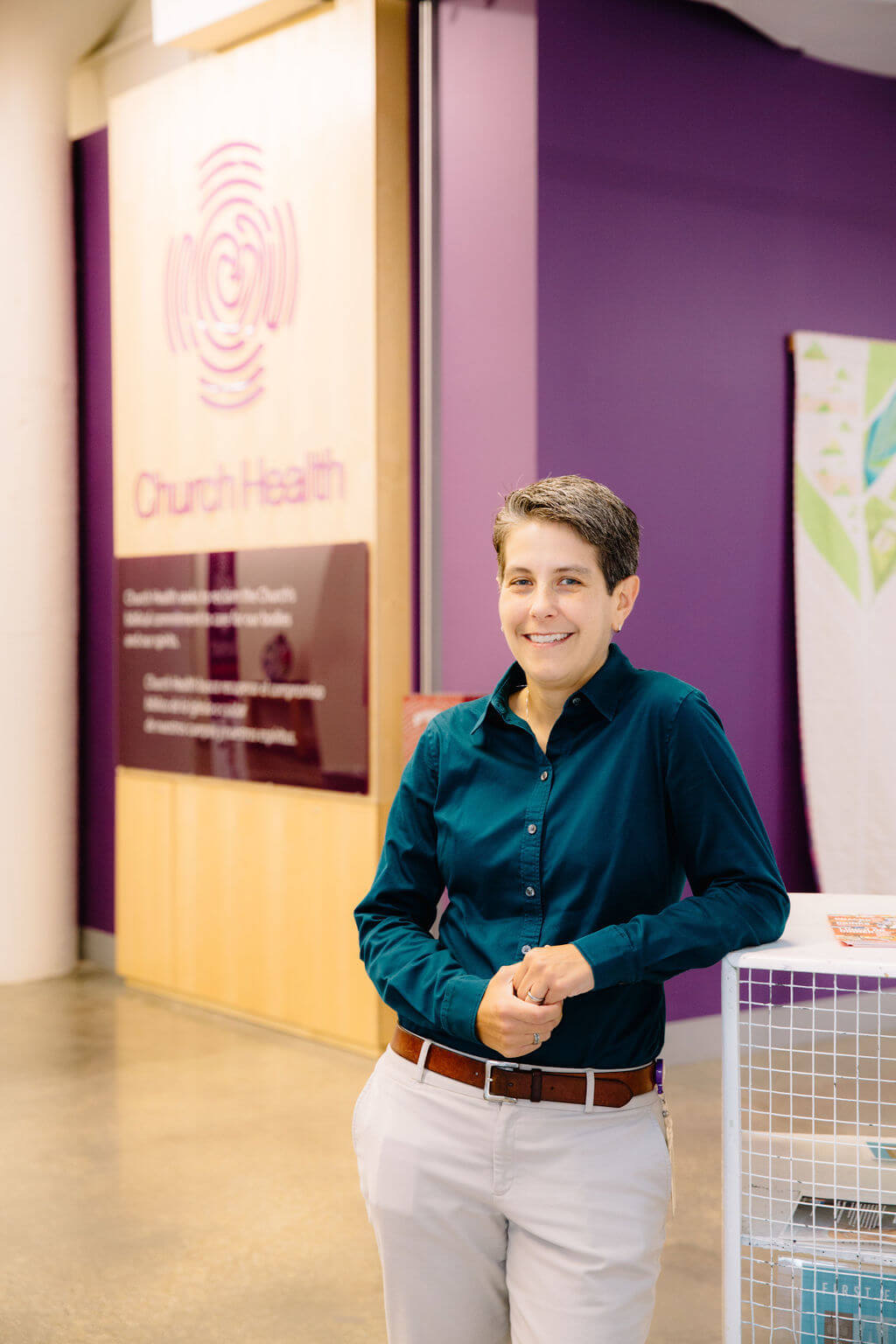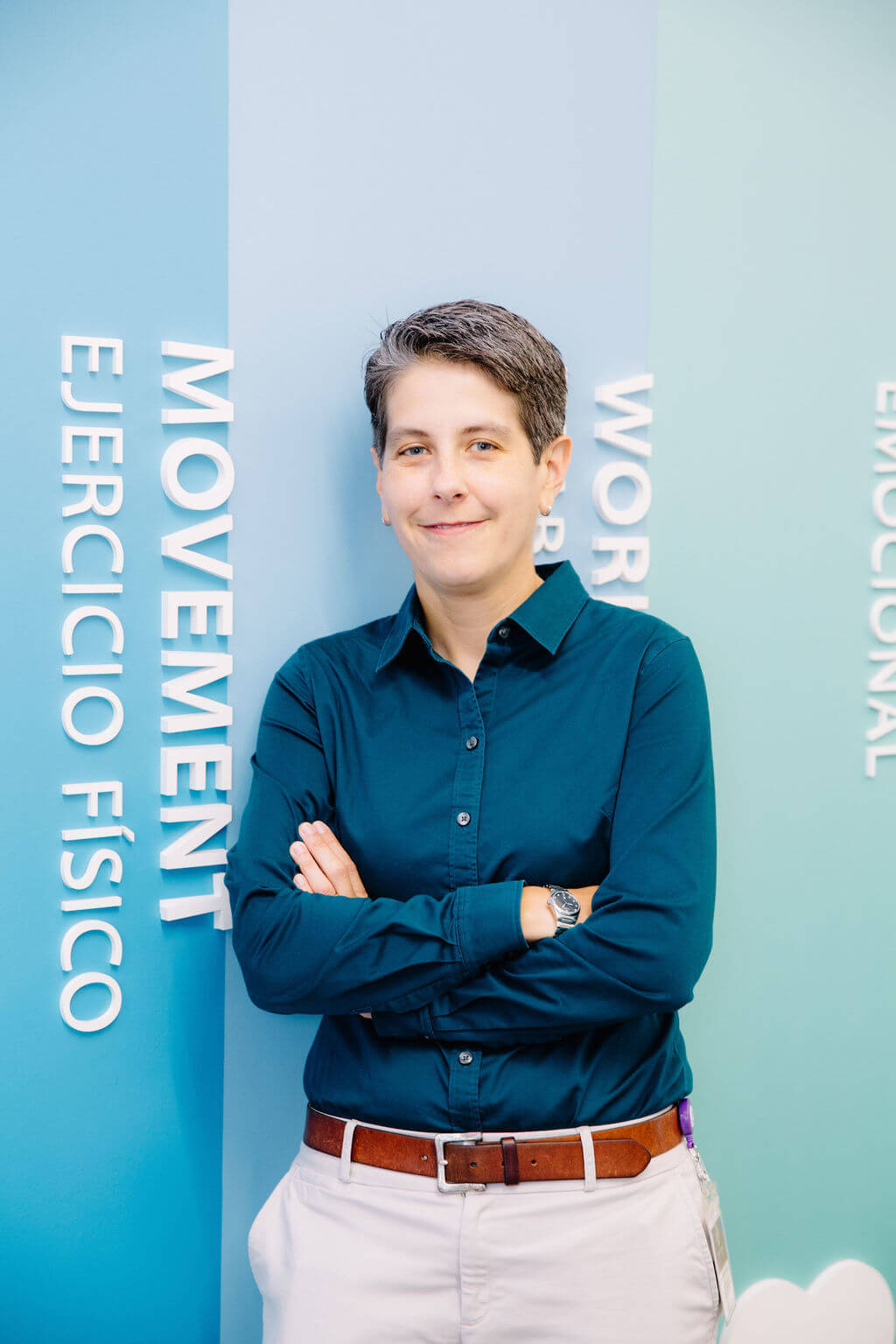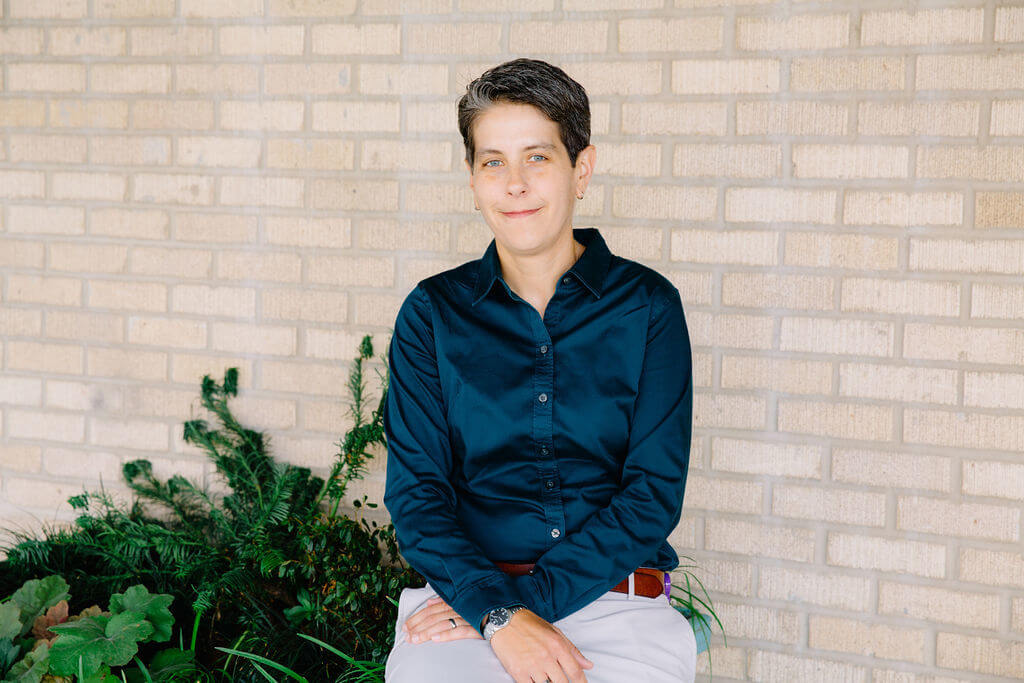In the shifting professional landscape and ever-changing medical industry, it’s become increasingly rare to build a career within one institution. Jenny Bartlett-Prescott, however, found her place within Church Health almost immediately after graduating from Rhodes College, and after 22 years of service has just been named the nonprofit’s first Chief Operating Officer.
As the largest faith-based, privately funded health clinic in the country, Church Health has been an innovator in providing accessible healthcare for the working poor, as well as a variety of free and low-cost faith, health, fitness, family and mindfulness activities open to the public each month. Jenny will now oversee the many levels of the organization’s work, from research to patient care, and serve alongside its founder, Dr. Scott Morris, to shape its future. Meet this week’s FACE of Memphis, Jenny Bartlett-Prescott!

Where were you born and what was your upbringing like?
I was born in Atlanta, Georgia, and I was raised for most of that time in Decatur, Georgia. I played soccer and I played in a bluegrass band in high school with my mom and her friends. My mom was called the Mother of the Coffee Houses in Atlanta, so I grew up in the middle of the acoustic music scene, which was fun.
You came to Memphis to study biology at Rhodes College. What’s one of your earliest memories of connecting with science?
From like second grade on, when they said, “What do you want to be when you grow up?”, I wanted to be a scientist. One of my earliest memories is having one of those bug catcher kits and my own microscope and finding bugs and categorizing them, or finding random pieces of dust or skin particles and looking at them under the microscope.
How did you become interested in public health?
I grew up with a family culture and commitment to social justice. My grandfather on my mom’s side was a pastor in Ohio who came down to Mississippi and marched with the Civil Rights Movement, was arrested, and lost his congregation in Ohio because of it. I grew up going to marches and demonstrations with my mom.
So my commitment was really to social justice and serving. I did not think that I had the patience to go through medical school. I was ready to roll up my sleeves and get going.

How has Church Health changed the conversation about access to medical care?
When you see someone who cuts grass in the most incredible heat all day long, or raking leaves once the leaves fall – the hardest workers you would ever see are often our patients. And yet when they get sick, there are very few resources for them. They’re working through illness, they’re working through injury, just to make our lives more comfortable.
I think what we do is really try to find a place where even though we may be on different sides of the political aisle, we can agree that these people need care, and they are our neighbors and they are our responsibility. We have just such a wide diversity of Memphians that support the work we do, and these days that’s really uncommon that you can find that.
What are some of the unique challenges that Memphis faces with healthcare?
When you look at the actual impact on community health that the delivery of healthcare has — the prescriptions and the visits to the doctor — it’s very small. It’s 10-20%. When you look at individual health behavior and the context of people’s lives, those cover a larger percentage of the impact on health. So if we really want to improve our community’s health, we have to work in multiple sectors. We can’t just work in the health sector. We have to work in housing, we have to work in education, we have to work in employment. And there’s not really an order of operations to it. We can’t work on education first and then we’ll work on housing. We have to work on it all at the same time. That’s the challenge.

What are some of the assets within the city that have inspired you?
I enjoy the bike lanes and the built environment improvements that are making it easier for people to make healthier choices. I’m a fan of soccer, so the Play Where You Stay movement that is trying to find fields and create opportunities for all kinds of neighborhoods to experience soccer has been something that I’m really proud of.
One of the things that’s unique and it’s something that Memphis should be very proud of is the level of collaboration among hospital systems. Even though they are strong competitors with each other, they come together to help us provide care for our patients. Memphis is a very generous city, but that’s been particularly evident here when you look at the thousands of volunteers and all of the healthcare systems that help weave together this web of services for our uninsured patients.
How does your new role help advance Church Health’s mission to care for the community?
One of the things that I’ve brought to the table is really leading an effort in articulating the strategy and then having a culture that allows us to continually improve on our strategy. It allows us to use data to make good decisions. We’ve just made so much progress over the years, and doing that allows us to reassure our partners, whether they’re volunteers or hospitals, Look, you’re donating your services and time to us, and look at how we are able to turn those donations into this impact here.

What’s the first place you take visitors to Memphis?
I’ll always bring them to Crosstown. Got gotta show off Church Health and the renovated building. Walking down Overton Park and through the old forest is usually a popular thing to do. We will do Big River Crossing and walk across the river.
What’s your favorite way to unwind?
Being outside hiking, just going on a walk. Or hanging out with the family, being as chill as possible, not checking emails.
What is your best advice?
This piece of advice that our medical director actually told me a couple of years ago that has really stuck is: There’s probably more than one right answer. As a perfectionist, it’s helpful for me to remember that. It takes the pressure off.
Other than big things like faith, family and friends, what are three everyday things that you can’t live without?
I can’t live without my morning coffee. When I was a Girl Scout troop leader, I would pack a coffee pot to plug in at the campsite so that I could have my morning coffee. It’s hard for me to think about living without a cat to curl up on the lap. And being able to be active and move is an important part of what I do.
Thank you, Jenny. And thank you to Elizabeth Looney for the beautiful photos!
**********
Want insider tips from financial experts? Check out our expert series with Reliant Investment Management. In our latest installment, they share the six steps that will put you firmly on the path to financial security. Click HERE!



















